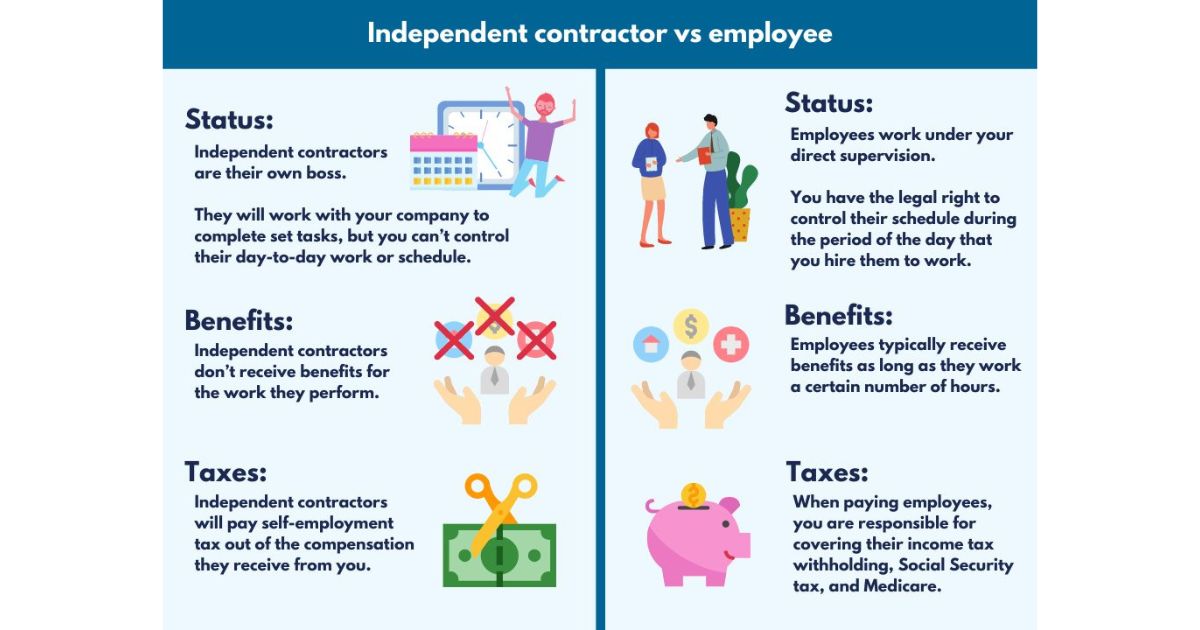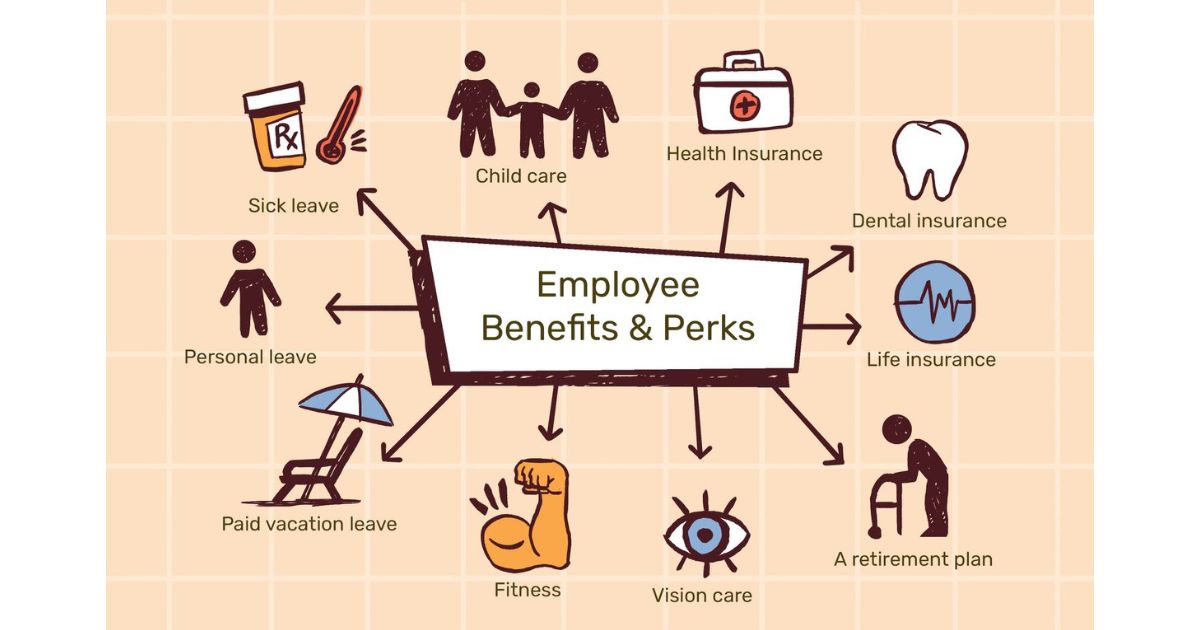How to hire independent contractors? You need to address your demand, have specific plans and processes and follow the local law to maximize the value of this popular type of employment.
What is an independent contractor?
An independent contractor is a self-employed person or entity contracted to perform work for, or provide services to another entity as a non-employee. As a result, independent contractors must pay their own Social Security and Medicare taxes.
Hiring independent contractors gives you more budget control, faster onboarding, and fewer legal hurdles. The most significant advantage of hiring independent contractors is that they arrive prepared to work. You don’t need to provide equipment, supplies, office space, training, or benefits. Independent contractors are supposed to be self-sufficient and a painless way to supplement your team.

See more: how much taxes does an independent contractor pay?
Independent contractors law in Vietnam
An individual can work as an independent contractor for a company or organization in Vietnam (commonly known as a freelancer). The Civil Code governs the service agreement, no employment relationship between the parties is established, and therefore they are not subject to labor regulations.
Companies that enter into service agreements with independent contractors may not be able to demand fixed hours of work or full-time commitment. Depending on the terms of the agreement, an independent contractor may or may not be required to perform their work on the company’s premises.
Depending on the length of the project and the payment terms to independent contractors, the company would pay a total package that included insurance and benefits, or the contractor would contribute themselves.
An independent contractor is not entitled to any statutory employment rights under Vietnamese labor law, such as insurance required by law, severance, annual leave, sick leave, maternity leave, unpaid leave, job-loss compensation upon termination of employment, etc.

If an employer misclassifies an employee as an independent contractor, labor authorities in Vietnam may interpret this misclassification as a deliberate evasion of labor laws and employment-related requirements by the employer.
In that case, the employer could face a monetary fine. For the duration of the employee’s employment, the employee’s statutory entitlements must be provided or paid.
How to hire independent contractors?
Step 1: Determine whether to hire employing independent contractors

Before hiring independent contractors, you should devise a specific hiring plan. This points out why you need contract employees, when you need them and how to maximize the value of the contractor hire.
To do so, you should clearly understand the difference between a contract employee and an independent contractor and the pros and cons of each type. This helps you to decide which hiring option works best for your company.
Step 2: Write the job description
We usually see the job descriptions for full and part-time employees. However, they can also be helpful when hiring independent workers.
- List the tasks you would like assistance with. To begin writing a job description, you can brainstorm skill sets and responsibilities by researching job descriptions for similar roles on career sites (Indeed, CareerBuilder, Monster, LinkedIn).
- List the tasks, skills, and qualifications you seek in a contract employee in your job posting. You should also include a job title that a job seeker might look for, such as Independent contract, Contract basis, Independent contractor, or (Role name) Contract.
Step 3: Choose the best employing independent contractors for the job
After having an attractive and clear job description, you will move to the following steps: finding, screening, and selecting the best long-term contractor.
For finding candidates, using your network is often the best way to find help for your small business. You can also post a job on LinkedIn, Indeed, and other popular job sites.
The most important step may be screening applicants. You could speed up the screening process by doing the following:
- Examine credentials for the skills you seek.
- Set up a 10- or 15-minute phone interview.
- Examine social media platforms
- Conduct in-person or virtual interviews

Step 4: Create a contract
When you find the right candidate, you’ll need to put a hiring contract in place. A contract is a legally binding document you and the contractor are bound by. The independent contractor agreement should include the following provisions:
- Information on the tasks and requirements
- Details about the functions and requirements
- Project timelines and deadlines
- Information about pay rates and billing terms
- Sections for nondisclosure and confidentiality
- Choice of law where the agreement will be enforced
- Termination clause
Step 5: Follow best practices for contractor onboarding
A tremendous independent contractor relationship begins with an excellent onboarding experience. An effective onboarding process can assist your contract employee to perform well on their work. Here are some pointers for a smooth onboarding process:
- Create a meeting point for their first day
- Collect paperwork like the contract agreement
- Grant access to necessary software, tools, and keys
- Have a knowledge base that documents what they need to know
- Review expectations, deliverables, and deadlines
- Do any training that may be required.

Once the project is underway, ask independent contractors how things are going. Maintain open communication lines so you can address and resolve any issues that may arise.
If you’ve hired a long-term contractor (for a few weeks, a month, or more), schedule regular check-ins to ensure the project is on track. When you finish the job, ask for feedback on what went well, what could have been improved, and their overall impression. It will assist you in providing an even better experience for your next contract hire.
FAQs
What independent contractor job pays the most?
According to Indeed, the best independent contractor jobs include telemarketer, social media manager, photographer, graphic designer, SEO specialist, editor, marketer, copywriter, artist, etc.
Is it better to be on payroll or an independent contractor?
It depends. If you want to be a collaborator, a team member, and relatively free of many operational business decisions, you should find long-term employment. If you want to be an entrepreneur and have a brand, consider becoming an independent contractor.
Conclusion
Now you’ve figured out “How to hire independent contractors?”, it’s time to review and start creating your hiring plan. This will help you have advantage of this type of employment and maximize your business productivity. For further guidance, feel free to contact ERA for consulting.
See more related articles:
How To Become An Independent Contractor?
Best Independent Contractor Jobs For A Flexible Work Lifestyle
Independent Contractor Agreement: Definition & Must-have Clauses
Understand the Differences: Independent Contractor vs Sole Proprietor
Independent Contractor vs. Employee: What’s The Difference
Ms. Tracy has worked in human resource consulting for over 15 years. A driven entrepreneur focused on business expansion and people development. She previously worked as Country Manager for an international Australia firm that specializes in global workforce management, as well as several key roles as Business Growth Director and Executive Search Director for both large local firms to effectively drive their business growth. A strong emphasis is placed on aligning organizational priorities/objectives with business needs. She has a large network of local business leaders and a thorough understanding of the local market.






